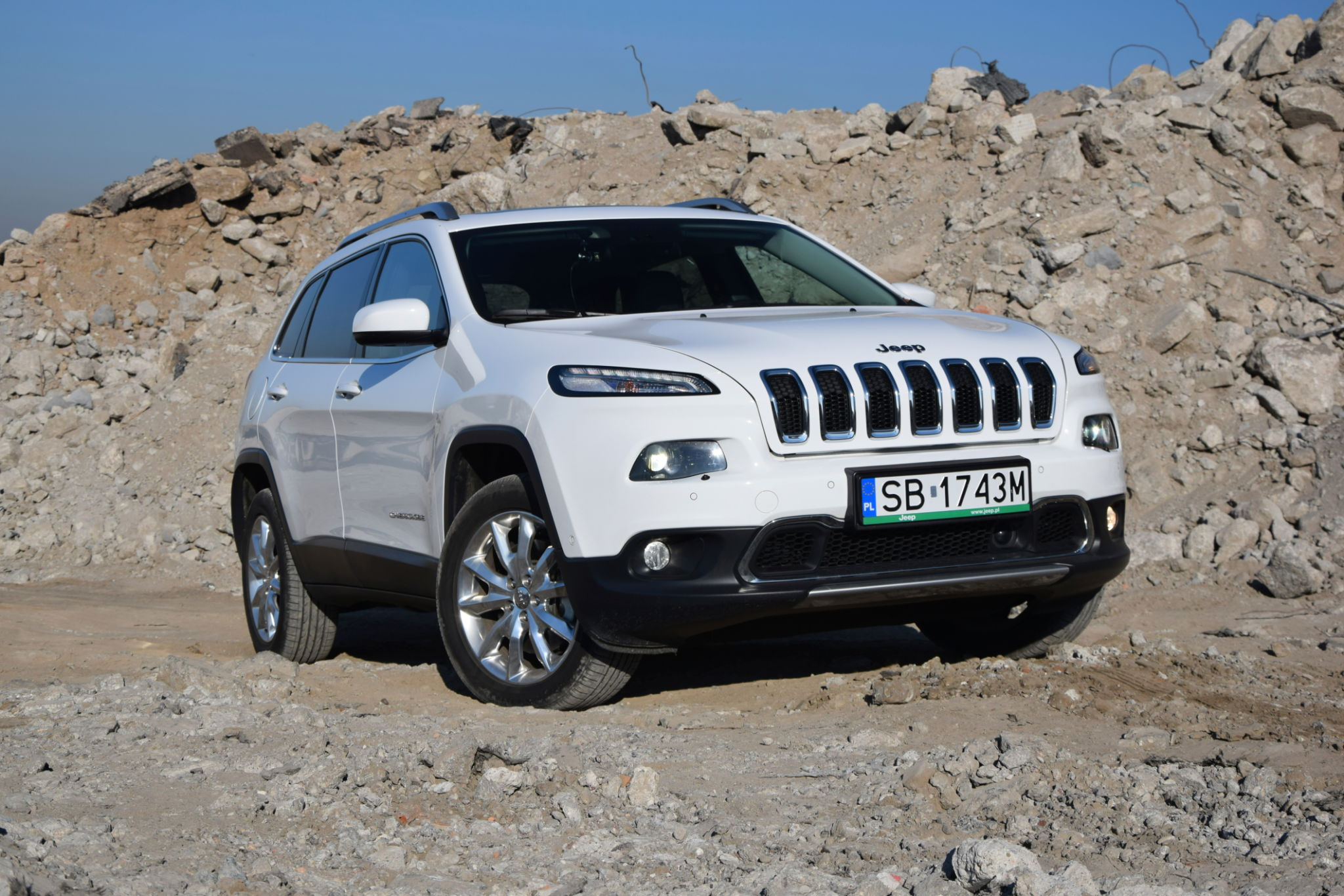Welcome to the world of the Jeep Cherokee, a vehicle renowned for its blend of rugged capability and everyday practicality. Today, we’re focusing on a key aspect that every Cherokee owner should be familiar with: the Jeep Cherokee’s fuel capacity. Understanding this vital feature is crucial, as it determines how far you can travel on a single tank and impacts your journey planning and overall driving experience.
Whether you’re a long-time Jeep enthusiast or a new owner, gaining insights into the fuel capacity of your Cherokee will enhance your driving adventures and help you make the most of this iconic SUV. Let’s dive in and explore what the Jeep Cherokee’s fuel capacity means for you and your travels.
What is the Fuel Capacity of Different Jeep Cherokee Models?
The fuel capacity of Jeep Cherokee models varies, generally ranging between 15.8 to 24.6 gallons, depending on the model and year.
The Jeep Cherokee has been a versatile player in the SUV market, and with different models come varying fuel capacities. For instance, the 2021 Jeep Cherokee Latitude boasts a tank size of approximately 15.8 gallons, while the 2021 Trailhawk® offers a larger capacity of about 24.6 gallons. It’s essential to check your specific model for the exact capacity.
How Fuel Capacity Affects Your Jeep Cherokee’s Performance

When it comes to your Jeep Cherokee, the size of the fuel tank plays a more significant role than you might initially think. It’s not just about how often you must stop at the gas station; it influences several aspects of your vehicle’s performance and overall driving experience. Let’s break down exactly how the fuel capacity impacts your Jeep Cherokee:
Extended Driving Range:
-
- The most immediate effect of a larger fuel tank is the increased driving range.
- This means you can cover more miles before needing to refuel.
- It’s especially beneficial for those who love long road trips or frequently travel in areas with sparse gas stations.
Weight Considerations:
-
- A larger fuel tank inevitably adds more weight to your vehicle.
- When the tank is full, this extra weight can slightly decrease fuel efficiency as your engine works harder to move the extra load.
- However, the trade-off is often worth it for the added convenience of a longer range.
Efficiency Factors:
-
- The size of your fuel tank indirectly affects your vehicle’s efficiency.
- With a larger tank, you can choose when and where to refuel, potentially allowing you to avoid higher-priced gas stations and wait for more economical options.
- It also means less frequent stops, which can be more fuel-efficient, especially on highways where stopping and starting again can consume more fuel.
Off-Roading Adventures:
-
- For off-road enthusiasts, a larger fuel tank is a significant advantage.
- It allows for extended exploration off the beaten path, where gas stations are often non-existent.
- This can be a game-changer for those who use their Jeep Cherokee for adventurous trips in remote areas.
Overall Vehicle Performance:
-
- The fuel capacity is a balancing act in terms of vehicle performance.
- While it does provide the benefit of a longer range, the added weight might affect acceleration and handling, particularly when the tank is full.
- It’s important to consider how you primarily use your Jeep Cherokee (city driving, long road trips, off-roading) to understand the impact of fuel capacity on your specific driving needs.
The fuel capacity of your Jeep Cherokee is a crucial factor that influences how far you can go without stopping for gas and affects aspects like vehicle efficiency, weight balance, and ability to embark on long or remote journeys. Understanding these impacts can help maximize your vehicle’s capabilities and ensure a more enjoyable driving experience.
Why Understanding Your Jeep Cherokee’s Fuel Capacity is Crucial
Knowing your Jeep Cherokee’s fuel capacity helps plan trips, manage fuel expenses, and maintain the vehicle.
Understanding your fuel capacity is essential for those who love long road trips or off-roading. It helps you plan your refueling stops and manage your travel expenses better. Plus, being aware of your fuel needs ensures that you don’t run out of gas unexpectedly, which is crucial, especially in areas where gas stations are sparse.
Fuel Capacity and Its Role in Off-Road Adventures
A higher fuel capacity means longer off-road adventures without worrying about running out of gas.
Jeep Cherokees, especially models like the Trailhawk®, are known for their off-roading prowess. A larger fuel tank means you can explore further off the beaten path without worrying about finding the next fuel station. This freedom is what makes the Jeep Cherokee a favorite among adventure seekers.
How to Maximize Fuel Efficiency in Your Jeep Cherokee
Maximizing the fuel efficiency of your Jeep Cherokee is not just about saving money at the pump; it’s also about making your driving experience more enjoyable and eco-friendly. Here are some in-depth details and tips, broken down into simple bullet points, to help you get the most out of every gallon:
Regular Maintenance:
- Engine Checks: Regularly servicing your engine ensures it runs smoothly. This includes changing the oil on time, replacing air filters when necessary, and ensuring the fuel system is clean.
- Tire Maintenance: Keep your tires properly inflated. Under-inflated tires create more resistance, leading to higher fuel consumption. Check your tire pressure monthly.
- Brake System: Ensure your brakes are not sticking, which can cause additional drag, reducing fuel efficiency.
Driving Habits:
- Smooth Acceleration: Avoid sudden accelerations. Gentle starts consume less fuel.
- Consistent Speed: Maintain a steady pace. Use cruise control on highways to keep your speed constant.
- Anticipate Stops: Gradually slowing down for stops instead of abrupt braking saves fuel.
- Limit Idle Time: If you’re waiting in your Cherokee for over a minute, turning off the engine and restarting it when needed is more fuel-efficient.
Vehicle Load Management:
- Remove Excess Weight: Don’t carry unnecessary items, especially heavy ones, as they make the engine work harder and consume more fuel.
- Aerodynamics: Remove roof racks or carriers when not in use, as they create wind resistance and reduce fuel economy.
- Close Windows at High Speeds: Open windows can create drag, especially at highway speeds, reducing fuel efficiency.
Additional Tips:
- Use the Right Fuel: Always use the recommended fuel type for your Jeep Cherokee.
- Plan Your Trips: Combining errands into one trip saves fuel and time. Cold starts of the engine use more fuel, so it’s efficient to run several errands in one outing.
- Regularly Check Fuel Cap: A damaged or loose fuel cap can lead to fuel evaporation and inefficiency.
By following these tips, you can enhance the fuel efficiency of your Jeep Cherokee. Remember, it’s not just about the significant changes; even minor adjustments in your driving style and vehicle maintenance can significantly affect your fuel consumption. Drive smart, save fuel, and enjoy the journey in your Cherokee!
The Role of Regular Maintenance in Fuel Capacity Optimization

Regular maintenance ensures that your Jeep Cherokee uses fuel efficiently and maintains its specified fuel capacity.
Regular Engine Check-Ups:
-
- Why It Matters: Routine engine inspections can identify any issues that might lead to increased fuel consumption, such as clogged air filters or worn spark plugs.
- Benefit: Keeping these components in good condition ensures your engine runs efficiently, directly impacting fuel economy.
Monitoring and Fixing Fuel Leaks:
-
- Importance: Fuel leaks, though rare, can be a major reason for reduced fuel capacity.
- Detection: Regular checks of the fuel line and tank for any signs of leakage can prevent loss of fuel and potential safety hazards.
Maintaining Optimal Tire Pressure:
-
- Effect on Fuel Capacity: Under-inflated tires create more driving resistance, leading to higher fuel consumption.
- Action Point: Regularly check and maintain the recommended tire pressure to ensure your Cherokee doesn’t use more fuel than necessary.
Keeping the Fuel System Clean:
-
- Why Cleanliness Counts: A clean fuel system ensures unobstructed fuel flow, preventing inefficiencies in consumption.
- Maintenance Tip: Regularly replacing fuel filters as your service manual recommends helps maintain a clean fuel system.
Up-to-date Software Updates:
-
- Modern Impact: Modern vehicles like the Jeep Cherokee often have software that controls fuel efficiency.
- Benefit of Updates: Ensuring your vehicle’s up-to-date software can optimize fuel management systems for better capacity usage.
Avoiding Excessive Weight:
-
- Fuel Efficiency Link: Extra weight in your vehicle can increase fuel consumption.
- Simple Action: Removing unnecessary items from your Cherokee can help maintain its fuel efficiency.
Periodic Emission Checks:
-
- Environmental Responsibility: Regular emission checks ensure your vehicle is eco-friendly and running efficiently.
- Direct Impact: A well-maintained emission system often translates to better fuel usage and capacity optimization.
Utilizing Professional Services:
-
- Expert Insight: Regular servicing by qualified professionals can provide a more thorough check than DIY inspections.
- Long-Term Benefit: Professional servicing can catch potential issues early, preventing them from becoming larger, more costly problems.
By investing time and effort into the regular maintenance of your Jeep Cherokee, you not only enhance its fuel efficiency but also contribute to its longevity. Simple steps like checking tire pressure, ensuring regular engine check-ups, and keeping the fuel system clean can significantly impact how well your Cherokee uses its fuel. This saves you money in the long run and ensures that your adventures with the Cherokee are smooth and uninterrupted. Remember, a well-maintained Jeep Cherokee is a reliable companion on the road!
Comparing Jeep Cherokee Fuel Capacity with Other SUVs
When we start comparing the fuel capacity of the Jeep Cherokee with other SUVs in its class, it’s like putting it in a race where every detail counts. The Cherokee isn’t just competing with others regarding how much fuel it can hold but also how well it uses that fuel.
First, let’s talk numbers. The Jeep Cherokee typically has a fuel tank that can hold around 15.8 to 24.6 gallons, depending on the model and year. This might not be the largest tank on the market, but it’s more than just about size. The Cherokee plays a smart game about using what you have efficiently.
Imagine two runners: one can carry more water but is slower, and the other carries a bit less but is faster and more agile. The Jeep Cherokee is like that second runner. It might not carry as much fuel as some of the bulkier SUVs out there, but it makes up for its efficiency and ability to easily handle different terrains.
In SUVs, you’ll find some with tanks that can hold more than 25 gallons. But here’s where the Cherokee shines – it balances its fuel capacity with other features. It’s like a multitool, offering not just the ability to hold a decent amount of fuel, but also the capability to navigate off-road trails, maintain good fuel efficiency, and provide a comfortable ride for daily use.
This balance is key in understanding the Cherokee’s place in the SUV market. It’s not trying to be the biggest or the most extravagant; it’s aiming to be the most versatile. For many drivers, this is a winning combination. They get an SUV that can take them on long road trips without constant fuel stops, handle off-road adventures, and still be efficient and practical for daily use.
Understanding Fuel Capacity in the Context of SUV Market Trends
The Jeep Cherokee aligns well with current SUV market trends, focusing on balancing fuel capacity and efficiency.
There’s a growing preference for SUVs that offer large fuel capacities, efficiency, and environmental consciousness in today’s market. The Jeep Cherokee meets these demands with its moderate fuel capacity and emphasis on more efficient models.
FAQ about Jeep Cherokee fuel capacity
How often should I refuel my Jeep Cherokee to maintain optimal performance?
Refuel your Jeep Cherokee before it drops below a quarter tank to maintain optimal performance.
Does the fuel capacity vary with different Jeep Cherokee trims?
Yes, fuel capacity can vary between different trims of the Jeep Cherokee.
How does the Jeep Cherokee’s fuel capacity compare to hybrid or electric SUVs?
The Jeep Cherokee’s fuel capacity is generally higher than hybrid or electric SUVs, but efficiency varies.
Can modifications affect the fuel capacity of my Jeep Cherokee?
Certain modifications can affect fuel capacity, but consulting with a professional before making changes is essential.
Conclusion
As we wrap up our exploration of the Jeep Cherokee’s fuel capacity, it’s clear that this aspect is more than just a figure in the owner’s manual. Understanding the fuel capacity of your Jeep Cherokee is key to unlocking its full potential, whether planning a long road trip, navigating daily commutes, or gearing up for an off-road adventure. The Cherokee strikes a fine balance between how much fuel it can hold and how efficiently it uses it, positioning it as a versatile and reliable choice in the SUV market. Remember, knowing your Cherokee’s fuel capacity isn’t just about measuring how far you can go on a tank; it’s about making every journey count.
With this knowledge, you’re a step ahead in maintaining your vehicle’s performance and ensuring you make the most out of every drive. Happy driving, and enjoy the journey in your Jeep Cherokee!

Hello there, this is Thomas Byrd. I am a professional car mechanic who leads a team of junior mechanics in a repair and restoration shop. In the beginning, I used to work for a jeep service center as a basic worker. From there I keep learning, changed my job 2 times and now I am a professional who leads a group of mechanics. Though a have expertise in the jeep, I know very well about all types of cars. To share my knowledge and skills with others I have created this blog website. Whenever I get free time from work I give my time to my blog.

